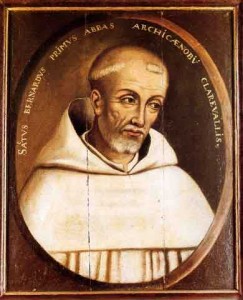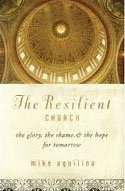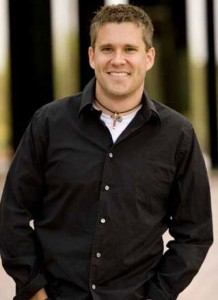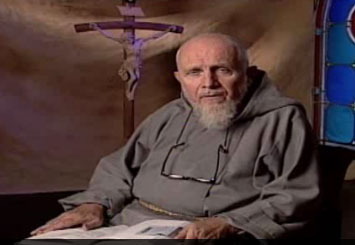Episode 5 – Whether sacred doctrine is a matter of argument? [powerpress]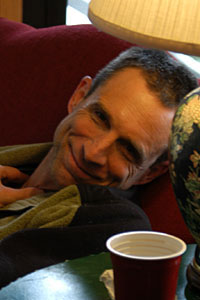
Question 1 Article 8Â Whether sacred doctrine is a matter of argument?
Objection 1: It seems this doctrine is not a matter of argument. For Ambrose says (De Fide 1): “Put arguments aside where faith is sought.” But in this doctrine, faith especially is sought: “But these things are written that you may believe” (Jn. 20:31). Therefore sacred doctrine is not a matter of argument.
Objection 2: Further, if it is a matter of argument, the argument is either from authority or from reason. If it is from authority, it seems unbefitting its dignity, for the proof from authority is the weakest form of proof. But if it is from reason, this is unbefitting its end, because, according to Gregory (Hom. 26), “faith has no merit in those things of which human reason brings its own experience.” Therefore sacred doctrine is not a matter of argument.
On the contrary, The Scripture says that a bishop should “embrace that faithful word which is according to doctrine, that he may be able to exhort in sound doctrine and to convince the gainsayers” (Titus 1:9). 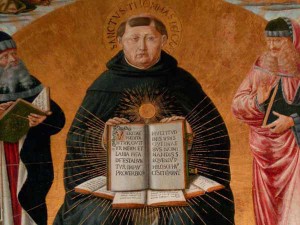
I answer that, As other sciences do not argue in proof of their principles, but argue from their principles to demonstrate other truths in these sciences: so this doctrine does not argue in proof of its principles, which are the articles of faith, but from them it goes on to prove something else; as the Apostle from the resurrection of Christ argues in proof of the general resurrection (1 Cor. 15). However, it is to be borne in mind, in regard to the philosophical sciences, that the inferior sciences neither prove their principles nor dispute with those who deny them, but leave this to a higher science; whereas the highest of them, viz. metaphysics, can dispute with one who denies its principles, if only the opponent will make some concession; but if he concede nothing, it can have no dispute with him, though it can answer his objections. Hence Sacred Scripture, since it has no science above itself, can dispute with one who denies its principles only if the opponent admits some at least of the truths obtained through divine revelation; thus we can argue with heretics from texts in Holy Writ, and against those who deny one article of faith, we can argue from another. If our opponent believes nothing of divine revelation, there is no longer any means of proving the articles of faith by reasoning, but only of answering his objections—if he has any—against faith. Since faith rests upon infallible truth, and since the contrary of a truth can never be demonstrated, it is clear that the arguments brought against faith cannot be demonstrations, but are difficulties that can be answered. (more…)
Tags: catholic, catholic podcast, catholic prayer, cathollc spirituality
This entry was posted on Monday, September 15th, 2014 at 11:18 am
You can follow any responses to this entry through the RSS 2.0 feed.
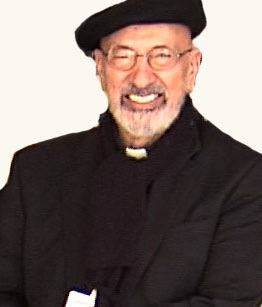 BKL 74 ” Building a Kingdom of Love” – “The Cross is the Sign of Love” Â
BKL 74 ” Building a Kingdom of Love” – “The Cross is the Sign of Love” Â
[powerpress]
Reading 2PHIL 2:6-11
Brothers and sisters:
Christ Jesus, though he was in the form of God,
did not regard equality with God something to be grasped.
Rather, he emptied himself,
taking the form of a slave,
coming in human likeness;
and found human in appearance,
he humbled himself,
becoming obedient to death,
even death on a cross.
Because of this, God greatly exalted him
and bestowed on him the name
that is above every name,
that at the name of Jesus
every knee should bend,
of those in heaven and on earth and under the earth,
and every tongue confess that
Jesus Christ is Lord,
to the glory of God the Father.
Gospel JN 3:13-17
“No one has gone up to heaven
except the one who has come down from heaven, the Son of Man.
And just as Moses lifted up the serpent in the desert,
so must the Son of Man be lifted up,
so that everyone who believes in him may have eternal life.â€
For God so loved the world that he gave his only Son,
so that everyone who believes in him might not perish
but might have eternal life.
For God did not send his Son into the world to condemn the world,
but that the world might be saved through him.
Msgr. John A. Esseff is a Roman Catholic priest in the Diocese of Scranton. He was ordained on May 30th 1953, by the late Bishop William J. Hafey, D.D. at St. Peter’s Cathedral in Scranton, PA. Msgr. Esseff served a retreat director and confessor to Blessed Mother Teresa. He continues to offer direction and retreats for the sisters of the missionaries of charity around the world. Msgr. Esseff encountered St. Padre Pio, who would become a spiritual father to him. He has lived in areas around the world, serving in the Pontifical missions, a Catholic organization established by Bl. Pope John Paul II to bring the Good News to the world especially to the poor. Msgr. Esseff assisted the founders of the Institute for Priestly Formation and continues to serve as a spiritual director for the Institute. He continues to serve as a retreat leader and director to bishops, priests and sisters and seminarians and other religious leaders around the world.   To obtain a copy of Msgr. Esseff’s book by visiting here  Be sure to visit Msgr. Esseff’s website “Building a Kingdom of Love“
 To obtain a copy of Msgr. Esseff’s book by visiting here  Be sure to visit Msgr. Esseff’s website “Building a Kingdom of Love“
Tags: catholic, catholic podcast, catholic prayer, cathollc spirituality
This entry was posted on Monday, September 15th, 2014 at 11:08 am
You can follow any responses to this entry through the RSS 2.0 feed.
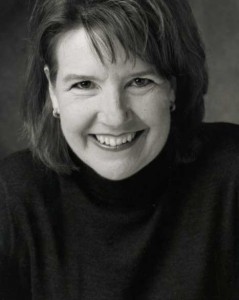 Episode 19- Seeking Truth with Sharon Doran -The Parables of Jesus (PART 1)
Episode 19- Seeking Truth with Sharon Doran -The Parables of Jesus (PART 1)
[powerpress]
Episode 19 –
The Parables of Jesus (part 1)
Through His parables, Jesus both conceals and reveals.
As Sharon teaches us in this lecture,
Jesus uses the parables to reveal the truths of the Kingdom.
Yet, he conceals his true identity as Messiah so that his plan for salvation will not be thwarted before the appointed hour of his death on the cross.
As Sharon shows us, these parables have an even deeper richness when seen through Middle Eastern eyes. Understanding the cultural details contained in parables such as the Sower or the Prodigal Son helps us to appreciate the power of these amazing stories.
Sharon’s lecture breathes new life into our understanding of these familiar stories.
Sharon Doran serves as the teaching director of “Seeking Truth.†An experienced Bible Study teacher, Sharon has a passion for scripture that will motivate and challenge you to immerse yourself in God’s Word and apply His message to your every day life.
 “Seeking Truth†is an in depth Catholic Bible Study, commissioned by the Archdiocese of Omaha in response to John Paul II’s call to the New Evangelization as well as Pope Benedict XVI’s exhortation for all Catholics to study scripture. To learn more go to:www.seekingtruth.net
“Seeking Truth†is an in depth Catholic Bible Study, commissioned by the Archdiocese of Omaha in response to John Paul II’s call to the New Evangelization as well as Pope Benedict XVI’s exhortation for all Catholics to study scripture. To learn more go to:www.seekingtruth.net
Tags: catholic, catholic podcast, catholic prayer, cathollc spirituality
This entry was posted on Monday, September 15th, 2014 at 8:48 am
You can follow any responses to this entry through the RSS 2.0 feed.
Episode 2 “What am I to do?†The Discernment of God’s Will in Everyday Decisions w/Fr. Timothy Gallagher.
This episode offers a instruction on how important it is to allow God to guide us not only in the big discernments of life, but also the decisions we make everyday.
[powerpress]
For other episodes in the series visit The Discerning Hearts “Discerning the Will of God†page
Father Timothy M. Gallagher, O.M.V., was ordained in 1979 as a member of the Oblates of the Virgin Mary, a religious community 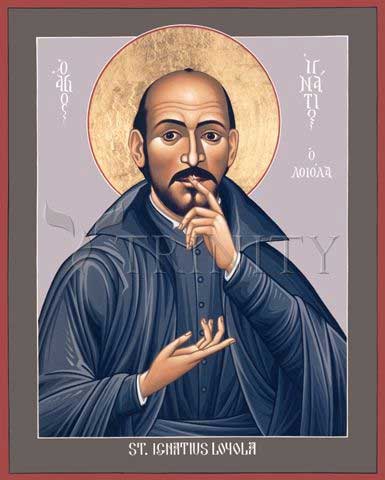 dedicated to retreats and spiritual formation according to the Spiritual Exercises of St. Ignatius. Â Fr. Gallagher is featured on the EWTN series “Living the Discerning Life: Â The Spiritual Teachings of St. Ignatius of Loyola”.
dedicated to retreats and spiritual formation according to the Spiritual Exercises of St. Ignatius. Â Fr. Gallagher is featured on the EWTN series “Living the Discerning Life: Â The Spiritual Teachings of St. Ignatius of Loyola”.
For more information on how to obtain copies of Fr. Gallaghers’s various books and audio which are available for purchase, please visit  his  website:   frtimothygallagher.org
For the other episodes in this series check out Fr. Timothy Gallagher’s “Discerning Hearts†page
Tags: catholic, catholic podcast, catholic prayer, cathollc spirituality
This entry was posted on Tuesday, September 2nd, 2014 at 11:19 am
You can follow any responses to this entry through the RSS 2.0 feed.
Episode 4-Whether this doctrine is the same as wisdom?
[powerpress]
Question 1 Article 6 Whether this doctrine is the same as wisdom??
Objection 1: It seems that this doctrine is not the same as wisdom. For no doctrine which borrows its principles is worthy of the name of wisdom; seeing that the wise man directs, and is not directed (Metaph. i). But this doctrine borrows its principles. Therefore this science is not wisdom.
Objection 2: Further, it is a part of wisdom to prove the principles of other sciences. Hence it is called the chief of sciences, as is clear in Ethic. vi. But this doctrine does not prove the principles of other sciences. Therefore it is not the same as wisdom.
Objection 3: Further, this doctrine is acquired by study, whereas wisdom is acquired by God’s inspiration; so that it is numbered among the gifts of the Holy Spirit (Is. 11:2). Therefore this doctrine is not the same as wisdom.
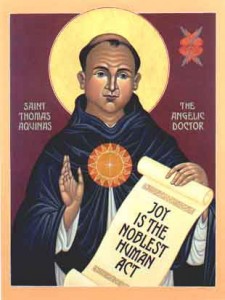 On the contrary, It is written (Dt. 4:6): “This is your wisdom and understanding in the sight of nations.”
On the contrary, It is written (Dt. 4:6): “This is your wisdom and understanding in the sight of nations.”
I answer that, This doctrine is wisdom above all human wisdom; not merely in any one order, but absolutely. For since it is the part of a wise man to arrange and to judge, and since lesser matters should be judged in the light of some higher principle, he is said to be wise in any one order who considers the highest principle in that order: thus in the order of building, he who plans the form of the house is called wise and architect, in opposition to the inferior laborers who trim the wood and make ready the stones: “As a wise architect, I have laid the foundation” (1 Cor. 3:10). Again, in the order of all human life, the prudent man is called wise, inasmuch as he directs his acts to a fitting end: “Wisdom is prudence to a man” (Prov. 10: 23). Therefore he who considers absolutely the highest cause of the whole universe, namely God, is most of all called wise. Hence wisdom is said to be the knowledge of divine things, as Augustine says (De Trin. xii, 14). But sacred doctrine essentially treats of God viewed as the highest cause—not only so far as He can be known through creatures just as philosophers knew Him—“That which is known of God is manifest in them” (Rm. 1:19)—but also as far as He is known to Himself alone and revealed to others. Hence sacred doctrine is especially called wisdom.
Reply to Objection 1: Sacred doctrine derives its principles not from any human knowledge, but from the divine knowledge, through which, as through the highest wisdom, all our knowledge is set in order.
Reply to Objection 2: The principles of other sciences either are evident and cannot be proved, or are proved by natural reason through some other science. But the knowledge proper to this science comes through revelation and not through natural reason. Therefore it has no concern to prove the principles of other sciences, but only to judge of them. Whatsoever is found in other sciences contrary to any truth of this science must be condemned as false: “Destroying counsels and every height that exalteth itself against the knowledge of God” (2 Cor. 10:4,5).
Reply to Objection 3: Since judgment appertains to wisdom, the twofold manner of judging produces a twofold wisdom. A man may judge in one way by inclination, as whoever has the habit of a virtue judges rightly of what concerns that virtue by his very inclination towards it. Hence it is the virtuous man, as we read, who is the measure and rule of human acts. In another way, by knowledge, just as a man learned in moral science might be able to judge rightly about virtuous acts, though he had not the virtue. The first manner of judging divine things belongs to that wisdom which is set down among the gifts of the Holy Ghost: “The spiritual man judgeth all things” (1 Cor. 2:15). And Dionysius says (Div. Nom. ii): “Hierotheus is taught not by mere learning, but by experience of divine things.” The second manner of judging belongs to this doctrine which is acquired by study, though its principles are obtained by revelation.
For an online version of St. Thomas Aquinas’ “Summa” click here
“Christian Apologetics with Dr. R. R. Reno” explores numerous facets of faith and reason in the life of the Church and the world. Grounded on the work of giants, such as St. Thomas Aquinas, St. Bonaventure, Blessed John Newman, soon-to-be Blessed John Paul II, G. K. Chesterton, Blaise Pascal and Stephen Barr, Dr. Reno helps us to open our minds to make the journey to our hearts.
R. R. Reno is the editor at First Things: A Journal of Religion, Culture, and Public Life, and Professor of Theology, currently on leave from Creighton University. His theological work has been published in many academic journals. Essays and opinion pieces on religion, public life, contemporary culture, and current events have appeared in Commentary, and the Washington Post. In Fighting the Noonday Devil Reno suggests that putting ourselves at the disposal of what is real is what trains us for true piety. His other recent books include Genesis: Brazos Theological Commentary on the Bible and Sanctified Vision: An Introduction to Early Christian Interpretation of the Bible.
Tags: catholic, catholic podcast, catholic prayer, cathollc spirituality
This entry was posted on Tuesday, September 2nd, 2014 at 11:15 am
You can follow any responses to this entry through the RSS 2.0 feed.
[powerpress] Â 
Msgr. Esseff speaks of our “5 Talents” and the dangers for the “workaholic”.  He offers Bl. Teresa of Calcutta and St. Pio as outstanding examples of the authentic Christian response to the Master’s request.
Jesus told his disciples this parable:
“A man going on a journey
called in his servants and entrusted his possessions to them.
To one he gave five talents; to another, two; to a third, one–
to each according to his ability.
Then he went away.
Immediately the one who received five talents went and traded with them,
and made another five.
Likewise, the one who received two made another two.
But the man who received one went off and dug a hole in the ground
and buried his master’s money.
After a long time
the master of those servants came back and settled accounts with them.
The one who had received five talents
came forward bringing the additional five.
He said, ‘Master, you gave me five talents.
See, I have made five more.’
His master said to him, ‘Well done, my good and faithful servant.
Since you were faithful in small matters,
I will give you great responsibilities.
Come, share your master’s joy.’
Then the one who had received two talents also came forward and said,
‘Master, you gave me two talents.
See, I have made two more.’
His master said to him, ‘Well done, my good and faithful servant.
Since you were faithful in small matters,
I will give you great responsibilities.
Come, share your master’s joy.’
Then the one who had received the one talent came forward and said,
‘Master, I knew you were a demanding person,
harvesting where you did not plant
and gathering where you did not scatter;
so out of fear I went off and buried your talent in the ground.
Here it is back.’
His master said to him in reply, ‘You wicked, lazy servant!
So you knew that I harvest where I did not plant
and gather where I did not scatter?
Should you not then have put my money in the bank
so that I could have got it back with interest on my return?
Now then! Take the talent from him and give it to the one with ten.
For to everyone who has,
more will be given and he will grow rich;
but from the one who has not,
even what he has will be taken away.
And throw this useless servant into the darkness outside,
where there will be wailing and grinding of teeth.’â€
Tags: catholic, catholic podcast, catholic prayer, cathollc spirituality
This entry was posted on Monday, September 1st, 2014 at 9:35 am
You can follow any responses to this entry through the RSS 2.0 feed.
Dr. Matthew Bunson discusses the life, times and teachings of St. Bernard of Clairvaux pt 2
Died: August 20, 1153, Clairvaux Abbey, France
Books:Â Two-Fold Knowledge
From Vatican.va, an excerpt from the teachings of Pope Benedict XVI General Audience 2009
I would now like to reflect on only two of the main aspects of Bernard’s rich doctrine: they concern Jesus Christ and Mary Most Holy, his Mother. His concern for the Christian’s intimate and vital participation in God’s love in Jesus Christ brings no new guidelines to the scientific status of theology. However, in a more decisive manner than ever, the Abbot of Clairvaux embodies the theologian, the contemplative and the mystic. Jesus alone Bernard insists in the face of the complex dialectical reasoning of his time Jesus alone is “honey in the mouth, song to the ear, jubilation in the heart (mel in ore, in aure melos, in corde iubilum)”. The title Doctor Mellifluus, attributed to Bernard by tradition, stems precisely from this; indeed, his praise of Jesus Christ “flowed like honey”. In the extenuating battles between Nominalists and Realists two philosophical currents of the time the Abbot of Clairvaux never tired of repeating that only one name counts, that of Jesus of Nazareth. “All food of the soul is dry”, he professed, “unless it is moistened with this oil; insipid, unless it is seasoned with this salt. What you write has no savour for me unless I have read Jesus in it” (In Canticum Sermones XV, 6: PL 183, 847). For Bernard, in fact, true knowledge of God consisted in a personal, profound experience of Jesus Christ and of his love. And, dear brothers and sisters, this is true for every Christian: faith is first and foremost a personal, intimate encounter with Jesus, it is having an experience of his closeness, his friendship and his love. It is in this way that we learn to know him ever better, to love him and to follow him more and more. May this happen to each one of us!
In another famous Sermon on the Sunday in the Octave of the Assumption the Holy Abbot described with
passionate words Mary’s intimate participation in the redeeming sacrifice of her Son. “O Blessed Mother”, he exclaimed, “a sword has truly pierced your soul!… So deeply has the violence of pain pierced your soul, that we may rightly call you more than a martyr for in you participation in the passion of the Son by far surpasses in intensity the physical sufferings of martyrdom” (14: PL 183, 437-438). Bernard had no doubts: “per Mariam ad Iesum”, through Mary we are led to Jesus. He testifies clearly to Mary’s subordination to Jesus, in accordance with the foundation of traditional Mariology. Yet the text of the Sermone also documents the Virgin’s privileged place in the economy of salvation, subsequent to the Mother’s most particular participation (compassio) in the sacrifice of the Son. It is not for nothing that a century and a half after Bernard’s death, Dante Alighieri, in the last canticle of the Divine Comedy, was to put on the lips of the Doctor Mellifluus the sublime prayer to Mary: “Virgin Mother, daughter of your own Son, / humble and exalted more than any creature, / fixed term of the eternal counsel” (Paradise XXXIII, vv. 1 ff.).
These reflections, characteristic of a person in love with Jesus and Mary as was Bernard, are still a salutary stimulus not only to theologians but to all believers. Some claim to have solved the fundamental questions on God, on man and on the world with the power of reason alone. St Bernard, on the other hand, solidly founded on the Bible and on the Fathers of the Church, reminds us that without a profound faith in God, nourished by prayer and contemplation, by an intimate relationship with the Lord, our reflections on the divine mysteries risk becoming an empty intellectual exercise and losing their credibility. Theology refers us back to the “knowledge of the Saints”, to their intuition of the mysteries of the living God and to their wisdom, a gift of the Holy Spirit, which become a reference point for theological thought. Together with Bernard of Clairvaux, we too must recognize that man seeks God better and finds him more easily “in prayer than in discussion”. In the end, the truest figure of a theologian and of every evangelizer remains the Apostle John who laid his head on the Teacher’s breast.
I would like to conclude these reflections on St Bernard with the invocations to Mary that we read in one of his beautiful homilies. “In danger, in distress, in uncertainty”, he says, “think of Mary, call upon Mary. She never leaves your lips, she never departs from your heart; and so that you may obtain the help of her prayers, never forget the example of her life. If you follow her, you cannot falter; if you pray to her, you cannot despair; if you think of her, you cannot err. If she sustains you, you will not stumble; if she protects you, you have nothing to fear; if she guides you, you will never flag; if she is favourable to you, you will attain your goal…” (Hom. II super Missus est, 17: PL 183, 70-71).
For more visit Vatican.va
Dr. Matthew Bunson, Senior Fellow of the St. Paul Center for Biblical Theology, is one of the United States’ leading authorities on the papacy and the Church.
His books include: The Encyclopedia of Catholic History; The Encyclopedia of Saints; Papal Wisdom; All Shall Be Well; Encyclopedia of the Roman Empire; and The Angelic Doctor: The Life and World of St. Thomas Aquinas; The Pope Encyclopedia; We Have a Pope! Benedict XVI, the first Catholic biography of the Holy Father in the English language; the Encyclopedia of U.S. Catholic History; Pope Francis. His also the editor of OSV’s “The Catholic Answer” magazine.
Tags: catholic, catholic podcast, catholic prayer, cathollc spirituality
This entry was posted on Friday, August 29th, 2014 at 5:42 pm
You can follow any responses to this entry through the RSS 2.0 feed.
Episode 1  “What am I to do?†The Discernment of God’s Will in Everyday Decisions w/Fr. Timothy Gallagher.
This episode offers an overall introduction of the series by offering examples, both big and small, and the overall tools that will be used to come to the discernment of God’s will in various situations. Â In particular, what do we do when deciding between “a morally good option and another apparently good option”?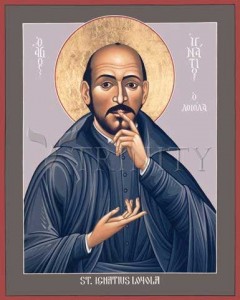
[powerpress]
For other episodes in the series visit The Discerning Hearts “Discerning the Will of God†page
Father Timothy M. Gallagher, O.M.V., was ordained in 1979 as a member of the Oblates of the Virgin Mary, a religious community dedicated to retreats and spiritual formation according to the Spiritual Exercises of St. Ignatius. Â Fr. Gallagher is featured on the EWTN series “Living the Discerning Life: Â The Spiritual Teachings of St. Ignatius of Loyola”.
For more information on how to obtain copies of Fr. Gallaghers’s various books and audio which are available for purchase, please visit  his  website:   frtimothygallagher.org
For the other episodes in this series check out Fr. Timothy Gallagher’s “Discerning Hearts†page
Tags: catholic, catholic podcast, catholic prayer, cathollc spirituality
This entry was posted on Tuesday, August 26th, 2014 at 2:08 pm
You can follow any responses to this entry through the RSS 2.0 feed.
Episode 3- Whether sacred doctrine (theology) is nobler than other sciences?
[powerpress]
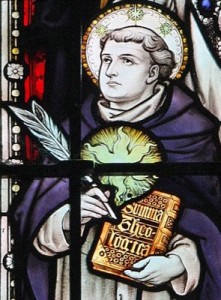 Question 1 Article 5 Whether sacred doctrine is nobler than other sciences?
Question 1 Article 5 Whether sacred doctrine is nobler than other sciences?
Objection 1: It seems that sacred doctrine is not nobler than other sciences; for the nobility of a science depends on the certitude it establishes. But other sciences, the principles of which cannot be doubted, seem to be more certain than sacred doctrine; for its principles—namely, articles of faith—can be doubted. Therefore other sciences seem to be nobler.
Objection 2: Further, it is the sign of a lower science to depend upon a higher; as music depends on arithmetic. But sacred doctrine does in a sense depend upon philosophical sciences; for Jerome observes, in his Epistle to Magnus, that “the ancient doctors so enriched their books with the ideas and phrases of the philosophers, that thou knowest not what more to admire in them, their profane erudition or their scriptural learning.” Therefore sacred doctrine is inferior to other sciences.
On the contrary, Other sciences are called the handmaidens of this one: “Wisdom sent her maids to invite to the tower” (Prov. 9:3).
I answer that, Since this science is partly speculative and partly practical, it transcends all others speculative and practical. Now one speculative science is said to be nobler than another, either by reason of its greater certitude, or by reason of the higher worth of its subject-matter. In both these respects this science surpasses other speculative sciences; in point of greater certitude, because other sciences derive their certitude from the natural light of human reason, which can err; whereas this derives its certitude from the light of divine knowledge, which cannot be misled: in point of the higher worth of its subject-matter because this science treats chiefly of those things which by their sublimity transcend human reason; while other sciences consider only those things which are within reason’s grasp. Of the practical sciences, that one is nobler which is ordained to a further purpose, as political science is nobler than military science; for the good of the army is directed to the good of the State. But the purpose of this science, in so far as it is practical, is eternal bliss; to which as to an ultimate end the purposes of every practical science are directed. Hence it is clear that from every standpoint, it is nobler than other sciences.
Reply to Objection 1: It may well happen that what is in itself the more certain may seem to us the less certain on account of the weakness of our intelligence, “which is dazzled by the clearest objects of nature; as the owl is dazzled by the light of the sun” (Metaph. ii, lect. i). Hence the fact that some happen to doubt about articles of faith is not due to the uncertain nature of the truths, but to the weakness of human intelligence; yet the slenderest knowledge that may be obtained of the highest things is more desirable than the most certain knowledge obtained of lesser things, as is said in de Animalibus xi.
Reply to Objection 2: This science can in a sense depend upon the philosophical sciences, not as though it stood in need of them, but only in order to make its teaching clearer. For it accepts its principles not from other sciences, but immediately from God, by revelation. Therefore it does not depend upon other sciences as upon the higher, but makes use of them as of the lesser, and as handmaidens: even so the master sciences make use of the sciences that supply their materials, as political of military science. That it thus uses them is not due to its own defect or insufficiency, but to the defect of our intelligence, which is more easily led by what is known through natural reason (from which proceed the other sciences) to that which is above reason, such as are the teachings of this science.
For an online version of St. Thomas Aquinas’ “Summa” click here
“Christian Apologetics with Dr. R. R. Reno” explores numerous facets of faith and reason in the life of the Church and the world. Grounded on the work of giants, such as St. Thomas Aquinas, St. Bonaventure, Blessed John Newman, soon-to-be Blessed John Paul II, G. K. Chesterton, Blaise Pascal and Stephen Barr, Dr. Reno helps us to open our minds to make the journey to our hearts.
R. R. Reno is the editor at First Things: A Journal of Religion, Culture, and Public Life, and Professor of Theology, currently on leave from Creighton University. His theological work has been published in many academic journals. Essays and opinion pieces on religion, public life, contemporary culture, and current events have appeared in Commentary, and the Washington Post. In Fighting the Noonday Devil Reno suggests that putting ourselves at the disposal of what is real is what trains us for true piety. His other recent books include Genesis: Brazos Theological Commentary on the Bible and Sanctified Vision: An Introduction to Early Christian Interpretation of the Bible.
Tags: catholic, catholic podcast, catholic prayer, cathollc spirituality
This entry was posted on Tuesday, August 26th, 2014 at 2:06 pm
You can follow any responses to this entry through the RSS 2.0 feed.
 BKL 72 ” Building a Kingdom of Love” – “Who do you say that I am?”   The Key to the New Evangelization and the importance of the Papacy
BKL 72 ” Building a Kingdom of Love” – “Who do you say that I am?”   The Key to the New Evangelization and the importance of the Papacy
[powerpress]
Gospel MT 16:13-20
he asked his disciples,
“Who do people say that the Son of Man is?â€
They replied, “Some say John the Baptist, others Elijah,
still others Jeremiah or one of the prophets.â€
He said to them, “But who do you say that I am?â€
Simon Peter said in reply,
“You are the Christ, the Son of the living God.â€
Jesus said to him in reply,
“Blessed are you, Simon son of Jonah.
For flesh and blood has not revealed this to you, but my heavenly Father.
And so I say to you, you are Peter,
and upon this rock I will build my church,
and the gates of the netherworld shall not prevail against it.
I will give you the keys to the kingdom of heaven.
Whatever you bind on earth shall be bound in heaven;
and whatever you loose on earth shall be loosed in heaven.â€
Then he strictly ordered his disciples
to tell no one that he was the Christ.
Msgr. John A. Esseff is a Roman Catholic priest in the Diocese of Scranton. He was ordained on May 30th 1953, by the late Bishop William J. Hafey, D.D. at St. Peter’s Cathedral in Scranton, PA. Msgr. Esseff served a retreat director and confessor to Blessed Mother Teresa. He continues to offer direction and retreats for the sisters of the missionaries of charity around the world. Msgr. Esseff encountered St. Padre Pio, who would become a spiritual father to him. He has lived in areas around the world, serving in the Pontifical missions, a Catholic organization established by Bl. Pope John Paul II to bring the Good News to the world especially to the poor. Msgr. Esseff assisted the founders of the Institute for Priestly Formation and continues to serve as a spiritual director for the Institute. He continues to serve as a retreat leader and director to bishops, priests and sisters and seminarians and other religious leaders around the world.   To obtain a copy of Msgr. Esseff’s book by visiting here  Be sure to visit Msgr. Esseff’s website “Building a Kingdom of Love“
 To obtain a copy of Msgr. Esseff’s book by visiting here  Be sure to visit Msgr. Esseff’s website “Building a Kingdom of Love“
Tags: catholic, catholic podcast, catholic prayer, cathollc spirituality
This entry was posted on Tuesday, August 26th, 2014 at 12:47 pm
You can follow any responses to this entry through the RSS 2.0 feed.
Dr. Matthew Bunson discusses the life, times and teachings of St. Bernard of Clairvaux pt 1
Died: August 20, 1153, Clairvaux Abbey, France
Books:Â Two-Fold Knowledge
From Vatican.va, an excerpt from the teachings of Pope Benedict XVI General Audience 2009
Today I would like to talk about St Bernard of Clairvaux, called “the last of the Fathers” of the Church because once again in the 12th century he renewed and brought to the fore the important theology of the Fathers. We do not know in any detail about the years of his childhood; however, we know that he was born in 1090 in Fontaines, France, into a large and fairly well-to-do family. As a very young man he devoted himself to the study of the so-called liberal arts especially grammar, rhetoric and dialectics at the school of the canons of the Church of Saint-Vorles at Châtillon-sur-Seine; and the decision to enter religious life slowly matured within him. At the age of about 20, he entered Cîteaux, a new monastic foundation that was more flexible in comparison with the ancient and venerable monasteries of the period while at the same time stricter in the practice of the evangelical counsels. A few years later, in 1115, Bernard was sent by Stephen Harding, the third Abbot of Cîteaux, to found the monastery of Clairvaux. Here the young Abbot he was only 25 years old was able to define his conception of monastic life and set about putting it into practice. In looking at the discipline of other monasteries, Bernard firmly recalled the need for a sober and measured life, at table as in clothing and monastic buildings, and recommended the support and care of the poor. In the meantime the community of Clairvaux became ever more numerous and its foundations multiplied.
In those same years before 1130 Bernard started a prolific correspondence with many people of both important and modest social status. To the many Epistolae of this period must be added numerous Sermones, as well as Sententiae and Tractatus. Bernard’s great friendship with William, Abbot of Saint-Thierry, and with William of Champeaux, among the most important figures of the 12th century, also date to this period. As from 1130, Bernard began to concern himself with many serious matters of the Holy See and of the Church. For this reason he was obliged to leave his monastery ever more frequently and he sometimes also travelled outside France. He founded several women’s monasteries and was the protagonist of a lively correspondence with Peter the Venerable, Abbot of Cluny, of whom I spoke last Wednesday. In his polemical writings he targeted in particular Abelard, a great thinker who had conceived of a new approach to theology, introducing above all the dialectic and philosophical method in the constructi0n of theological thought. On another front Bernard combated the heresy of the Cathars, who despised matter and the human body and consequently despised the Creator. On the other hand, he felt it was his duty to defend the Jews, and condemned the ever more widespread outbursts of anti-Semitism. With regard to this aspect of his apostolic action, several decades later Rabbi Ephraim of Bonn addressed a vibrant tribute to Bernard. In the same period the holy Abbot wrote his most famous works such as the celebrated Sermons on the Song of Songs [In Canticum Sermones]. In the last years of his life he died in 1153 Bernard was obliged to curtail his journeys but did not entirely stop travelling. He made the most of this time to review definitively the whole collection of his Letters, Sermons and Treatises. Worthy of mention is a quite unusual book that he completed in this same period, in 1145, when Bernardo Pignatelli, a pupil of his, was elected Pope with the name of Eugene III. On this occasion, Bernard as his spiritual father, dedicated to his spiritual son the text De Consideratione [Five Books on Consideration] which contains teachings on how to be a good Pope. In this book, which is still appropriate reading for the Popes of all times, Bernard did not only suggest how to be a good Pope, but also expressed a profound vision of the Mystery of the Church and of the Mystery of Christ which is ultimately resolved in contemplation of the mystery of the Triune God. “The search for this God who is not yet sufficiently sought must be continued”, the holy Abbot wrote, “yet it may be easier to search for him and find him in prayer rather than in discussion. So let us end the book here, but not the search” (XIV, 32: PL 182, 808) and in journeying on towards God.
For more visit Vatican.va
Dr. Matthew Bunson, Senior Fellow of the St. Paul Center for Biblical Theology, is one of the United States’ leading authorities on the papacy and the Church.
His books include: The Encyclopedia of Catholic History; The Encyclopedia of Saints; Papal Wisdom; All Shall Be Well; Encyclopedia of the Roman Empire; and The Angelic Doctor: The Life and World of St. Thomas Aquinas; The Pope Encyclopedia; We Have a Pope! Benedict XVI, the first Catholic biography of the Holy Father in the English language; the Encyclopedia of U.S. Catholic History; Pope Francis. His also the editor of OSV’s “The Catholic Answer” magazine.
Tags: catholic, catholic podcast, catholic prayer, cathollc spirituality
This entry was posted on Friday, August 22nd, 2014 at 8:29 am
You can follow any responses to this entry through the RSS 2.0 feed.
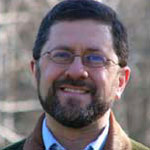 Episode 6– Crusades Abroad and at Home
Episode 6– Crusades Abroad and at Home
The Resilient Church with Mike Aquilina, offers a fascinating look at the trials and triumphs of the Catholic Church over the past two thousand years. Fast-paced sketches of critical periods in church history give readers perspective on the challenges faced by the church today. Mike Aquilina does not shrink from the realities of the past, including badly behaved leaders and those who betrayed the Lord. Yet he also leaves us all with well-founded hope for the future: God remains faithful in every circumstance and fulfills his promise to remain with his church always. Hosted by Kris McGregor
Also visit Mike’s “Discerning Hearts†page for more audio downloads and information!
Tags: catholic, catholic podcast, catholic prayer, cathollc spirituality
This entry was posted on Friday, August 22nd, 2014 at 8:16 am
You can follow any responses to this entry through the RSS 2.0 feed.
The Sunday, Sunday, Sunday Podcast is a reflection on the upcoming Sunday Mass readings presented by LifeTeen.com and hosted by Mark Hart.
Sunday Readings from the USCCB
Reading 1Â Â IS 22:19-23
Responsorial Psalm PS 138:1-2, 2-3, 6, 8
Reading 2 Â ROM 11:33-36
Gospel MT 16:13-20
Jesus went into the region of Caesarea Philippi and
he asked his disciples,
“Who do people say that the Son of Man is?â€
They replied, “Some say John the Baptist, others Elijah,
still others Jeremiah or one of the prophets.â€
He said to them, “But who do you say that I am?â€
Simon Peter said in reply,
“You are the Christ, the Son of the living God.â€
Jesus said to him in reply,
“Blessed are you, Simon son of Jonah.
For flesh and blood has not revealed this to you, but my heavenly Father.
And so I say to you, you are Peter,
and upon this rock I will build my church,
and the gates of the netherworld shall not prevail against it.
I will give you the keys to the kingdom of heaven.
Whatever you bind on earth shall be bound in heaven;
and whatever you loose on earth shall be loosed in heaven.â€
Then he strictly ordered his disciples
to tell no one that he was the Christ.
Lectionary for Mass for Use in the Dioceses of the United States, second typical edition, Copyright © 2001, 1998, 1997, 1986, 1970 Confraternity of Christian Doctrine;
Tags: catholic, catholic podcast, catholic prayer, cathollc spirituality
This entry was posted on Friday, August 22nd, 2014 at 8:06 am
You can follow any responses to this entry through the RSS 2.0 feed.
The Prayer of the Hebrew Scriptures – .  Fr. Groeschel discusses the experience of Abraham, Moses, the Maccabees.  He shares the beauty of the Psalms.  He speaks of the importance of the Christian enter the mystery of prayer found in the Hebrew Scriptures  (Old Testament of the Bible).
This program features Fr. Benedict Groeschel teaching and talking about the Catechism and the Bible with an emphasis on prayer. His discussion of prayer is based on the premise that an essential condition of prayer is devotion- the belief that God is listening and cares for us. In “Prayer in the Catechism”, Fr. Groeschel discusses the various kinds of prayer, including a special emphasis on using scripture when praying. The catechism contains basic Christian teaching formatted for learning and understanding. More information about the Catechism of the Catholic Church may be found on the United States Conference of Catholic Bishops website.
Benedict Joseph Groeschel, CFR is a Catholic priest, retreat master, author, psychologist, activist and has hosted several television programs. He was the director of the Office for Spiritual Development for the Catholic Archdiocese of New York as well as associate director of Trinity Retreat and the executive director of The St. Francis House. He was professor of pastoral psychology at St. Joseph’s Seminary in New York and an adjunct professor at the Institute for Psychological Sciences in Arlington, Virginia.
This program is a production of Pauline Media and the Daughters of St. Paul copyright 1997. Â For more from Pauline Media visit here
Tags: Benedict Groeschel, catholic, catholic podcast, catholic prayer, cathollc spirituality, Hebrew Scriptures
This entry was posted on Friday, August 22nd, 2014 at 7:45 am
You can follow any responses to this entry through the RSS 2.0 feed.
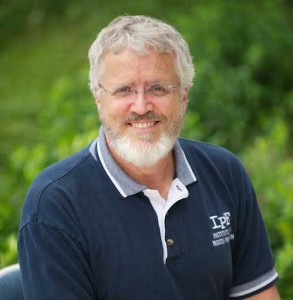 Episode 2 Salvation Begins Now: Last Things First –  What is  Death?  Why do we fail to contemplate it’s truth…why do we fear it?  What is Purgatory?  Why is there a need for final purgation?
Episode 2 Salvation Begins Now: Last Things First –  What is  Death?  Why do we fail to contemplate it’s truth…why do we fear it?  What is Purgatory?  Why is there a need for final purgation?
[powerpress]
From the Catechism of the Catholic Church:
1030 All who die in God’s grace and friendship, but still imperfectly purified, are indeed assured of their eternal salvation; but after death they undergo purification, so as to achieve the holiness necessary to enter the joy of heaven
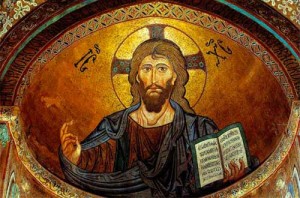
Deacon James Keating, PhD, the director of Theological Formation for the Institute for Priestly Formation, located at Creighton University, in Omaha.
For more information on the “Institute of Priestly Formation” and for other material available by Deacon Keating, just click here
Don’t forget to pickup a copy of “Communion with Christ” , it is one of the best audio sets on prayer…ever!
Check out Deacon Keating’s “Discerning Heart” page
Tags: catholic, catholic podcast, catholic prayer, cathollc spirituality, creighton university, death, institute for priestly formation, last things, purgatory
This entry was posted on Tuesday, August 19th, 2014 at 4:00 pm
You can follow any responses to this entry through the RSS 2.0 feed.


